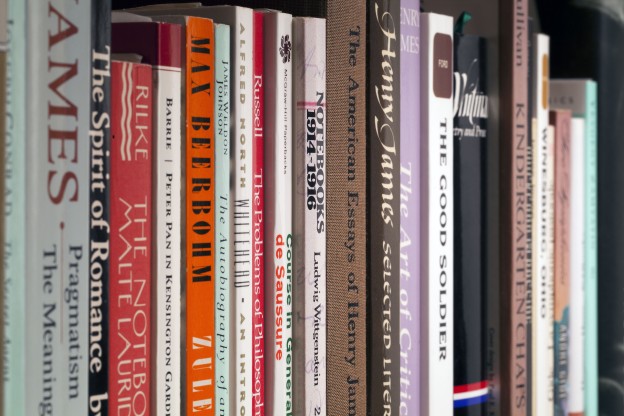Most every year I join thousands of professors and graduate students, independent scholars and writers, booksellers and editors for the annual pilgrimage to the Modern Language Association’s (MLA) Annual Convention. This year I arrived by train from New Haven, Connecticut, in Philadelphia, Pennsylvania, the site of the 2009 convention. My trip to the MLA this year was brief. We have new horses at home, and my daughter E is competing in the Polar Bear ice hockey tournament in Shelton, Connecticut, and so I could only get away for a couple of days.
Soon after the train pulled into the 30th Street Station I hopped a cab to the hotel, printed out introductory remarks that I had revised on the train, and walked to the Marriot Hotel where I chaired a special session sponsored by the Association of the Departments of English on the small college department. I focused this year’s session on the criteria and requirements currently active in departments and institutions for earning tenure—specifically how these criteria may have changed or be changing, whether changes (and what changes) would seem more productive and more counter-productive, and how institutional conditions and complexities determine the work of promotion and tenure committees. A number of questions were addressed by the three panelists. Have the requirements for publication for tenure and promotion changed in institutions over the past ten years? How do small-college departments define productivity and growth in scholarship and related professional activity? How do small-college departments value scholarship beyond the standard peer-reviewed journals or monograph? How does the apparently necessary specialization in graduate school prepare graduate students for positions where the publication of a monograph is not the requirement for tenure?
My brief introductory remarks suggested that small departments have something important to add to the profession-wide conversation about scholarly activities and modes of publication (including digital). For many of our institutions have aligned standards for faculty evaluation with the mission, values and practices of our institution; abandoned the reductive conflation of scholarship with publication; revised our standards for promotion and tenure to reflect the intellectual work our faculty do; published standards for promotion and tenure are published and visible to junior faculty; conduct faculty evaluation without depending upon the judgment of presses or outside evaluators; value teaching and service in both promotion and tenure reviews; and value collaborative intellectual work as a contribution to the profession as well as the to the public that supports our work. I argued that representing more fully what we do will require us to move beyond general claims for teaching as a form of scholarship and decontextualized arguments about the value of teaching. Instead, I suggested, we need to shift our focus to the local histories of institutions where we can learn what the profession is doing beyond our inevitably parochial point of view. My goal for the special session was to investigate what might be possible in the small college department as well as to suggest how these possibilities might inspire comparable intellectual work in other professional and institutional contexts. The speakers were Jeffry C. Davis, associate professor of English at Wheaton College, James M. Lang, associate professor in the English Department at Assumption College, and Ann Green, associate professor at Saint Joseph’s University. We were fortunate to have close to fifty people in the audience and a good question and answer period.
An evening watching ice hockey on the TV, a green curry Thai dinner, a good night’s sleep and a morning run though the cold and windy canyons of the city and along the icy shore of the Schuylkill river—then back to the convention hotel to help out as a job counselor for the MLA. In the afternoon, I joined David Lawrence, Steve Olson, Sheridan Blau, and John Ottenberg in a special session arranged by the MLA Office of Research called “Reading as a Teacher: a Workshop for Teachers of Literature.” We designed this session to explore a pragmatic question: Does reading to teach a work of literature call for forms of attention that are distinctive—ways of thinking and observing that differ from those we use as scholars or as readers generally? Elizabeth Bishop’s poem “The Moose” was to be the focus of the discussion. Before the workshop, participants were asked to read the poem as if they are preparing to teach it in either a lower-division undergraduate literature course taken chiefly by nonmajors or an upper-division course in twentieth-century American poetry taken mainly by English majors. (The poem is available online at the Web site of The Poetry Foundation.) We each offered brief introductory remarks and then we divided the room into small discussion groups of eight people. The organizing questions for the group included the following: What problems and possibilities for teaching and learning does Bishop’s “The Moose” offer? What challenges or difficulties follow from this poem’s way of doing what it does, whether for a student attempting to read it or for a teacher attempting to guide or enable students’ reading? Ostensibly, we were to conclude the workshop with thirty minutes of full-group discussion. But we really only had a few minutes to report on its discussion. My group, in fact, talked more generally about the idea of reading as a teacher and the assumptions of the workshop itself. We all agreed that the session was a good start; but we needed more time to address the interesting questions we had raised.
My friends and graduate student colleagues J and M were at the session and we went out for a nice Italian dinner. The three of us work together on the journal and it is always good to catch up in person. I was also fortunate to have a nice breakfast the following morning with my friend and graduate school advisor before catching the train back to New Haven where R picked me up and whisked me back to Shelton to watch the girls win another hockey game and qualify for the final day of games.

